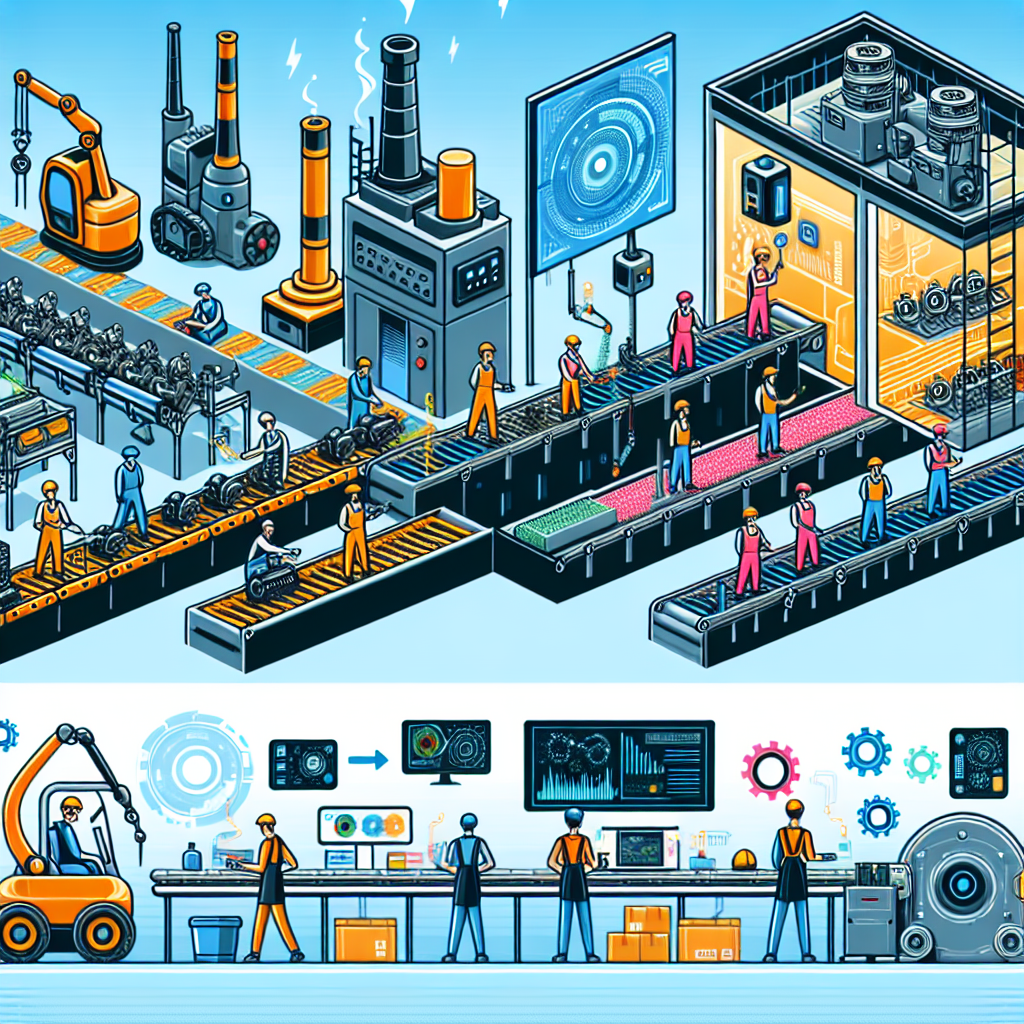Artificial Intelligence (AI) is revolutionizing the manufacturing industry by optimizing processes, increasing efficiency, and improving overall productivity. From predictive maintenance to quality control, AI is transforming the way manufacturers operate. In this article, we will explore how AI is being used to improve manufacturing processes and the benefits it brings to the industry.
1. Predictive Maintenance
One of the key areas where AI is making a significant impact in manufacturing is predictive maintenance. By using machine learning algorithms, manufacturers can predict when a machine is likely to fail and proactively schedule maintenance before a breakdown occurs. This not only reduces downtime but also helps in optimizing maintenance schedules and extending the lifespan of equipment. AI can analyze data from sensors and historical maintenance records to identify patterns and predict potential failures with a high degree of accuracy.
2. Quality Control
AI is also being used to improve quality control processes in manufacturing. By analyzing images and data from sensors, AI algorithms can detect defects and anomalies in products with greater speed and accuracy than human inspectors. This helps in reducing the number of defective products that reach the market, improving overall product quality, and customer satisfaction. AI-powered quality control systems can also provide real-time feedback to operators, enabling them to make adjustments on the fly and ensure consistent quality throughout the production process.
3. Supply Chain Optimization
AI is playing a crucial role in optimizing supply chain processes in manufacturing. By analyzing data from various sources such as suppliers, transportation, and inventory levels, AI algorithms can help in predicting demand, optimizing inventory levels, and improving logistics efficiency. This leads to reduced costs, faster delivery times, and better overall supply chain management. AI can also identify potential bottlenecks in the supply chain and suggest solutions to overcome them, enabling manufacturers to operate more smoothly and efficiently.
4. Energy Efficiency
AI is being used to improve energy efficiency in manufacturing processes. By analyzing energy consumption data and identifying areas of wastage, AI algorithms can help in optimizing energy usage and reducing costs. AI-powered systems can also suggest ways to improve energy efficiency, such as adjusting production schedules or optimizing equipment usage. This not only helps in reducing carbon footprint but also leads to cost savings for manufacturers in the long run.
5. Process Optimization
AI is helping manufacturers optimize their production processes by analyzing data from sensors, machines, and other sources to identify inefficiencies and bottlenecks. By using machine learning algorithms, manufacturers can improve process parameters, reduce cycle times, and increase overall productivity. AI can also help in identifying opportunities for automation and robotics integration, leading to further efficiency gains and cost savings. By continuously monitoring and analyzing production data, AI systems can provide valuable insights to manufacturers on how to optimize their processes and improve performance.
FAQs
Q: How can AI help in reducing downtime in manufacturing?
A: AI can help in reducing downtime by predicting potential machine failures and scheduling maintenance proactively. By analyzing data from sensors and historical maintenance records, AI algorithms can identify patterns and predict when a machine is likely to fail, enabling manufacturers to take preventive action before a breakdown occurs.
Q: How does AI improve quality control in manufacturing?
A: AI improves quality control in manufacturing by analyzing images and data from sensors to detect defects and anomalies in products. AI algorithms can identify defects with greater speed and accuracy than human inspectors, leading to improved product quality and customer satisfaction.
Q: How can AI optimize supply chain processes in manufacturing?
A: AI can optimize supply chain processes in manufacturing by analyzing data from various sources such as suppliers, transportation, and inventory levels. AI algorithms can help in predicting demand, optimizing inventory levels, and improving logistics efficiency, leading to reduced costs and faster delivery times.
Q: How does AI improve energy efficiency in manufacturing?
A: AI improves energy efficiency in manufacturing by analyzing energy consumption data and identifying areas of wastage. AI algorithms can help in optimizing energy usage, reducing costs, and suggesting ways to improve energy efficiency, leading to cost savings and reduced carbon footprint.
Q: How can AI help in process optimization in manufacturing?
A: AI helps in process optimization in manufacturing by analyzing data from sensors, machines, and other sources to identify inefficiencies and bottlenecks. By using machine learning algorithms, manufacturers can improve process parameters, reduce cycle times, and increase overall productivity, leading to efficiency gains and cost savings.

